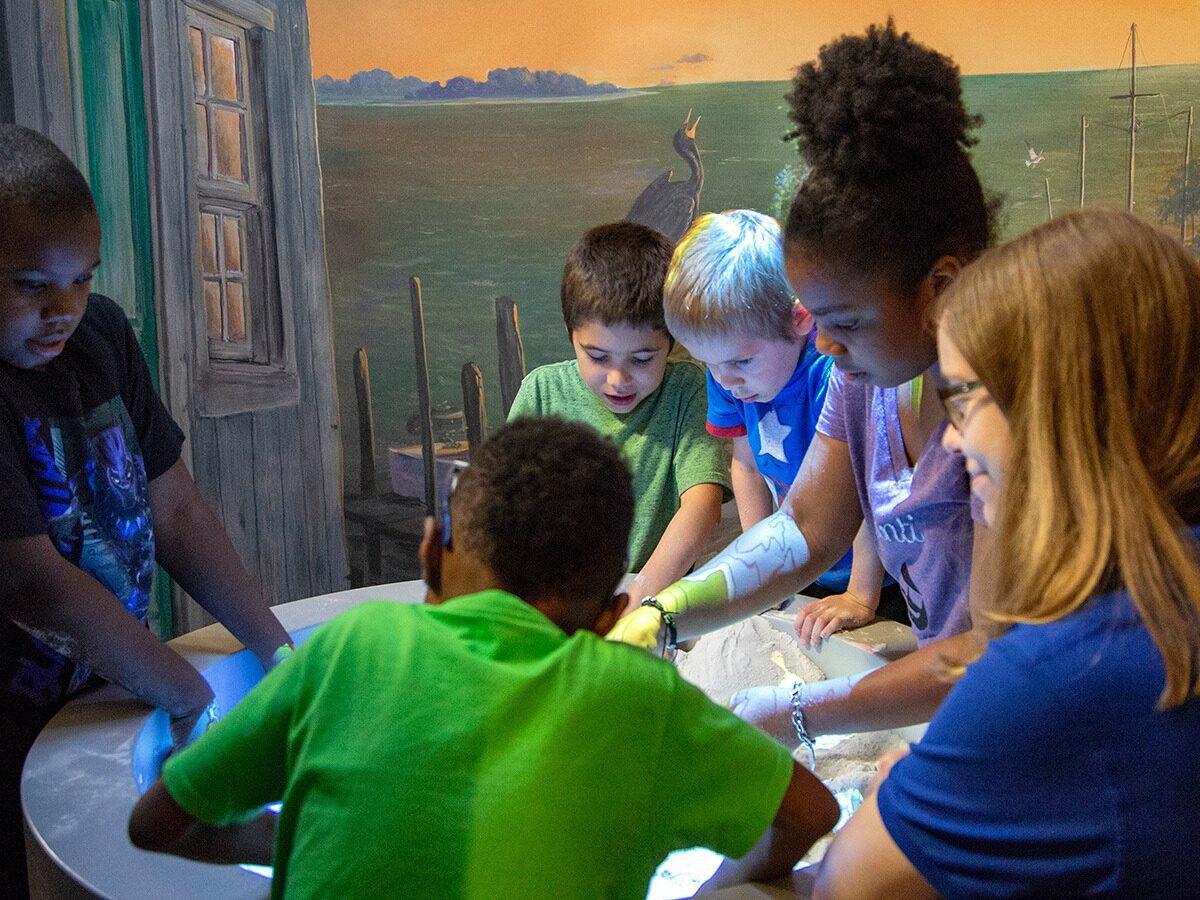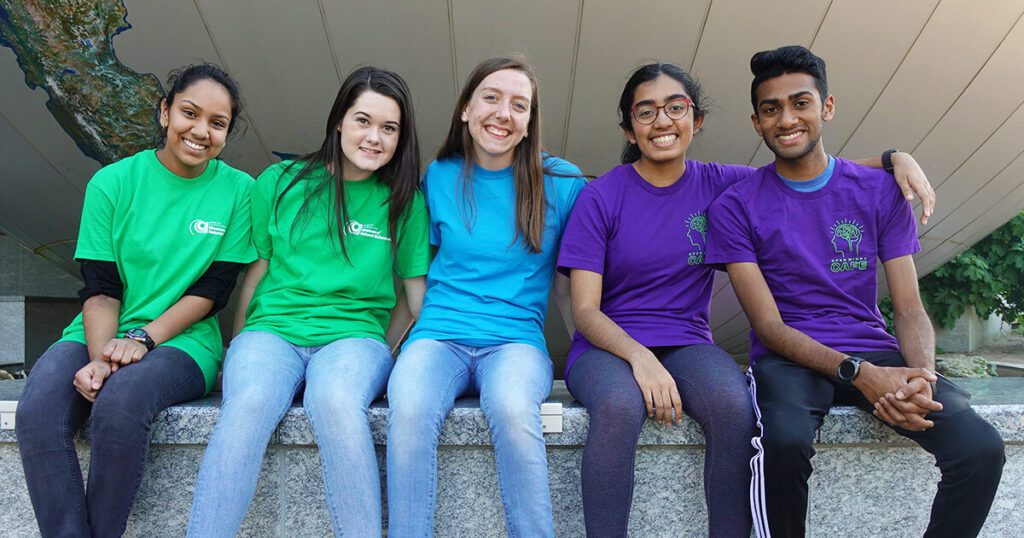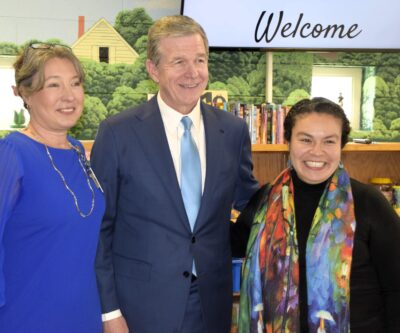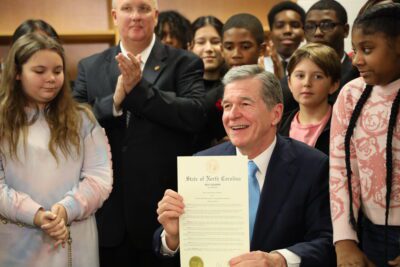

Share this story
|
|
Do you know that North Carolina’s Department of Natural and Cultural Resources manages over 100 places that matter across the state, including 27 historic sites, seven history museums, two art museums, five science museums, four aquariums, 35 state parks, four recreation areas, dozens of state trails and natural areas, the North Carolina Zoo, the State Library, the State Archives, the N.C. Arts Council, the African American Heritage Commission, the American Indian Heritage Commission, the State Historic Preservation Office, the Office of State Archaeology, the Highway Historical Markers program, the N.C. Land and Water Fund, and the Natural Heritage Program?
For more than 50 years, the department has inspired a lifelong love of learning at all of those places North Carolinians cherish.
Education has always been a core mission of the department, but a new initiative, “Learning Happens Here,” seeks to connect the department’s educational resources with students, parents, and educators.
Support for educators
“My top priority is to connect our educational resources to as many North Carolina K-12 teachers and students as possible,” said Secretary Reid Wilson on the department’s website.
Classroom resources for educators include standards-aligned lesson plans, activities, and multimedia experiences, which can be found by visiting the hub #GoOpenNC.
Online and in person professional development opportunities can be explored through a calendar or by location.
A school field trip finder and financial support is available for schools to visit the department’s sites.
Additional resources for teachers can be found on the NC Learn website, including a “We love NC” activity.
School programs


Check out these school outreach opportunities to bring programs to schools across North Carolina.
There also are 19 different virtual field trips!
These special programs, contests, and clubs “offer additional ways to spark creativity, curiosity, scholarship, and stewardship in your students.”
“From A to Z,” says the website, the department “has staff members that can be everything from accountants to zookeepers.” The career exploration program introduces students to professions, and helps them consider “what they like to do, where interests and skills connect, and how they identify themselves within diverse career paths.” The opportunities to learn more includes “Zoo Jobs: More Than You Think,” aquarium job shadowing, internship and volunteer opportunities, and lesson plans.
Key priorities for K-12 education
“The initiative aims to inspire a love of learning, promote unity through shared history, foster science literacy, encourage environmental responsibility, and instill a lifelong passion for reading,” according to the press release. The department’s priorities focus on key areas in K-12 education:
History and Culture: North Carolina has a rich and complex history, with a diverse cultural tapestry that has shaped who we are today. Our department is dedicated to uncovering and sharing an expanded set of stories about the people and events that have influenced our history. We believe that presenting multiple perspectives illuminates a more comprehensive history, even when some aspects are painful and difficult to confront. Understanding our shared past builds unity and guides us toward a brighter future. Our goal is to help students understand where they fit in our state’s journey toward achieving our country’s founding ideals while embracing our wonderfully diverse culture and arts.
Science: We strive to increase students’ understanding and appreciation of scientific concepts. Through interactive exhibits, hands-on experiences, and educational programs, we spark curiosity and foster a love for scientific inquiry, aiming to cultivate the next generation of innovators and problem solvers.
Nature: North Carolina boasts a wealth of natural beauty, and we believe in connecting students to the outdoors and encouraging outdoor recreation. Our initiatives provide opportunities for students to explore and appreciate the wonders of nature, fostering environmental awareness and encouraging a sense of responsibility for the conservation of our land, water, air, and wildlife.
Literacy and Reading: We are committed to promoting literacy and a lifelong love for reading. Literacy is the foundation of education, and we aim to instill a passion for books and knowledge in every North Carolina student. By nurturing reading skills and fostering a love for literature, we empower students to excel in all areas of their education.
Arts: Artists and artistic institutions educate and inspire our youth and improve their quality of life.
Connecting students to opportunities beyond school
“‘Learning Happens Here’ will help the next generation of North Carolinians to thrive in a knowledge-driven world,” says the press release.
“Governor Cooper has declared 2024 as the Year of Public Schools in North Carolina,” said Secretary Reid Wilson. “Our ‘Learning Happens Here’ initiative will complement the governor’s efforts by sharing our department’s substantial educational content and programs.”




